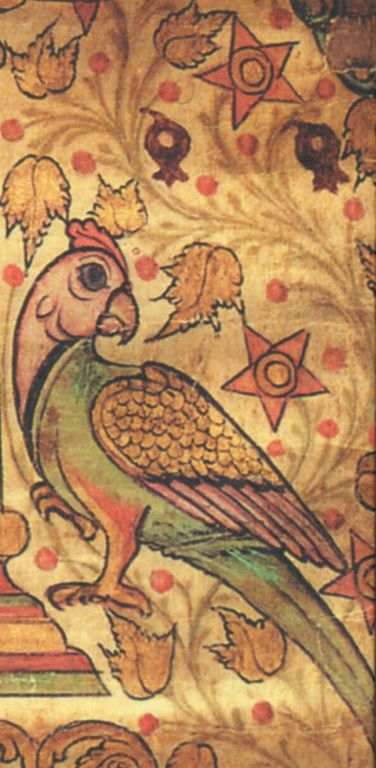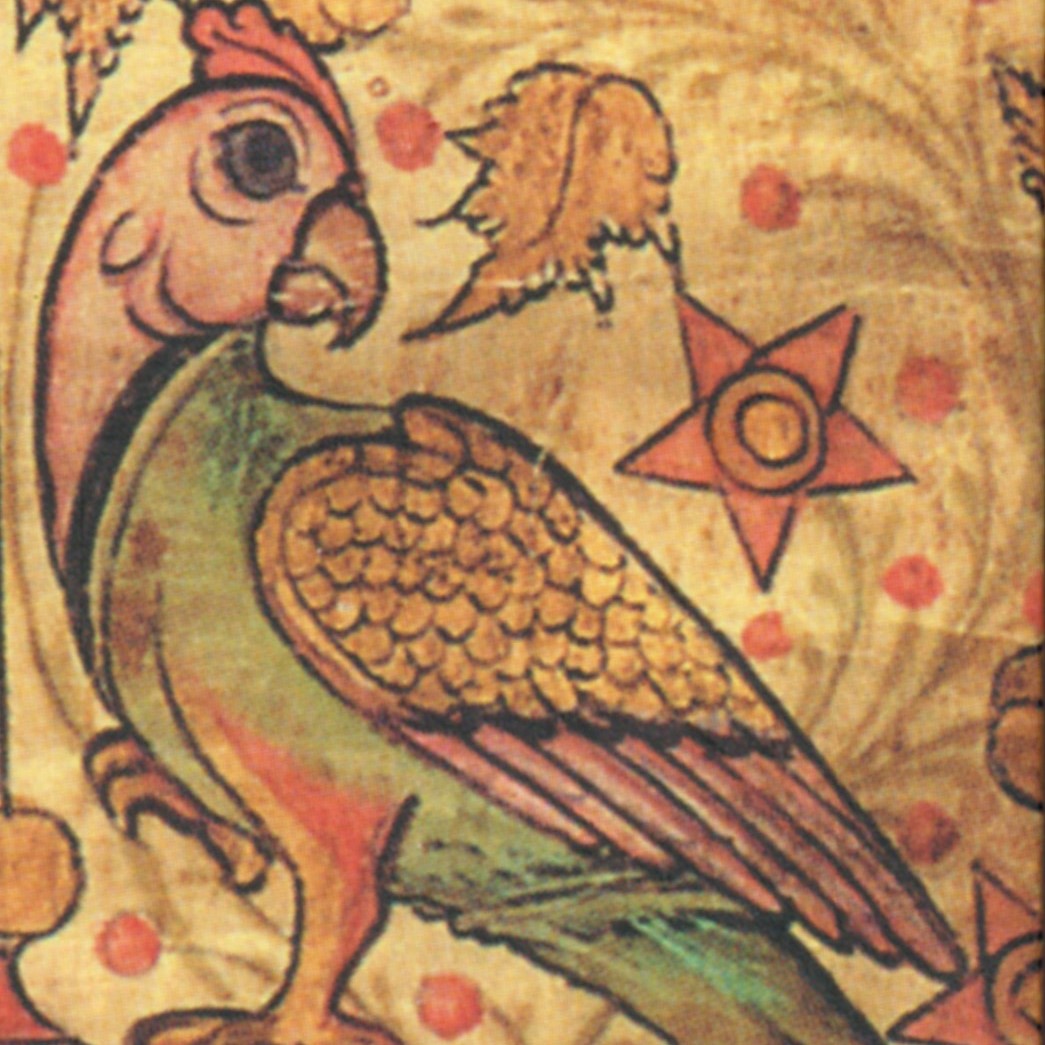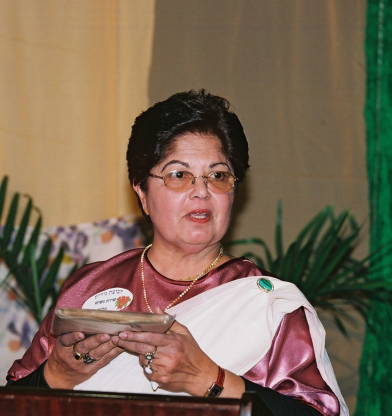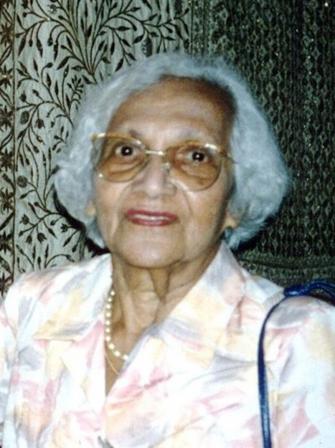1976
7. Tekkumbhagam-Ernakulam Synagogue Song
Miriam Daniel. Recorded by Edith Gerson-Kiwi and Shirley Isenberg, Moshav Taoz, December 20, 1976. CD track 16; I-23.
Āti mutalāya ñāyaṃ tannil. (x2)
Ayiṃboṭĕ tān munnil kuṃbiḍuvān
Netipoṟeḷuṃ niṟmaṇaluṃ
Nittiyaṃ tanḍe tiruvĕḷḷatt
1. God Who existed from the start, (x2)
O God to Whom all should bow down,
Even for those who follow Your laws,
Before Your Majesty, how can we stand?2. Give us the wisdom in our hearts, (x2)
To praise You, O Almighty God.
Here in this paḷḷi, the joy of our life,
Waken our hearts to praise You, Lord.3. From granite stone the threshold is made. (x2)
Crossing the threshold of finely shaped stone,
Walking across the river-bed sand,
Stepping up through the grand entrance way,4. Bathing our feet at the break of day,[1] (x2)
Round all four sides of the paḷḷi we walk.
Here in this paḷḷi, the joy of our life,
Waken our hearts to praise You, Lord.5. Like a graceful gem set in a ring, (x2)
In front of the paḷḷi a structure stands.
Fashioned as if with pearls, it is made.
And inside the paḷḷi an upper floor6. Where heaven’s beauty doth descend. (x2)
Send rain like the dew, O gracious God!
Here in this paḷḷi, the joy of our life,
Waken our hearts to praise You, Lord.7. Rising from golden purity, (x2)
Built as if from the purest of gold,
In its golden essence Jutapaḷḷi[2] is pure.
Of golden black its floor doth shine,8. So bright it rings out like bells that chime. (x2)
Like a treasure box is our Tekkumbhagam.
Here in this paḷḷi, the joy of our life,
Waken our hearts to praise You, Lord.
This poetic song of praise for one of the two synagogues in Ernakulam begins and ends with a prayer that the singers’ hearts be filled with the wisdom and devotion appropriate for worship.
The detailed description of this particular paḷḷi begins with the granite threshold at the entrance to its large surrounding courtyard. When the late Isaac Joshua (president of the Association of Kerala Jews in India) read a Malayalam text of this song for the first time, he was able to recall details he had forgotten from his childhood (interview September 1999). He remembered playing in the fine, white river-bed sand of the courtyard and on the benches of the path under the bridge connecting the synagogue itself to an outer building. The song’s image of “a graceful gem set in a ring” may refer to these external paḷḷi structures, which were demolished before 1939, when the main building was reconstructed and dedicated. (An illustrated description of the old and new structures is found in Eliyahu-Oron and Johnson 2021, 155–161.) The white sand of the courtyard and the highly polished black floor of the former sanctuary—both characteristic of wealthy Hindu temples and royal dwellings—were unique among Kerala synagogues, according to Joshua.
As in the Parur and Paradesi synagogue songs (songs 6 and 9), the women’s perspective is apparent here, in the mention of their upstairs room behind the upper tebah, entered by way of the bridge or breezeway linking the entrance building with the synagogue. Here, this upstairs room is graced with a poetic reference to the sky, which could be viewed through open side windows, inspiring a prayer for rain. Descriptive allusions to gold and pearls as well as the gem in a ring also infuse the song with a feminine flavor, culminating in the image of the entire paḷḷi as a treasure box of jewels—a point also made by Gamliel (2005, 154).
Ernakulam is the large mainland city across the harbor from Kochi, where there are two synagogues near each other in what was a Jewish residential and commercial center until the mid-1950s. The building of the old Tekkumbhagam Paḷḷi celebrated in this song has been variously dated at 1200 or 1580 (Sassoon 1932, 1056). Eleven texts of this song have been found, in notebooks from all three Kochi communities and one from Chendamangalam, in addition to the two from Ernakulam-Tekkumbhagam itself. Perhaps the song was so widely shared because it would have been sung publicly in 1939 at the last synagogue dedication to occur in Kerala. Set to the tune of a popular Hebrew bakashah, ’Elohei ‘Oz Tehilati (Sefer Tefilat haḤodesh 1931, 22), it was recorded in Israel in 1976, sung by Miriam Daniel from Kadavumbhagam—Kochi.
___________________________________
[1] Alternative readings: “at the silver light of dawn” or “by the shining silver lamp.”
[2] “Jutapaḷḷi” means Jewish paḷḷi.







